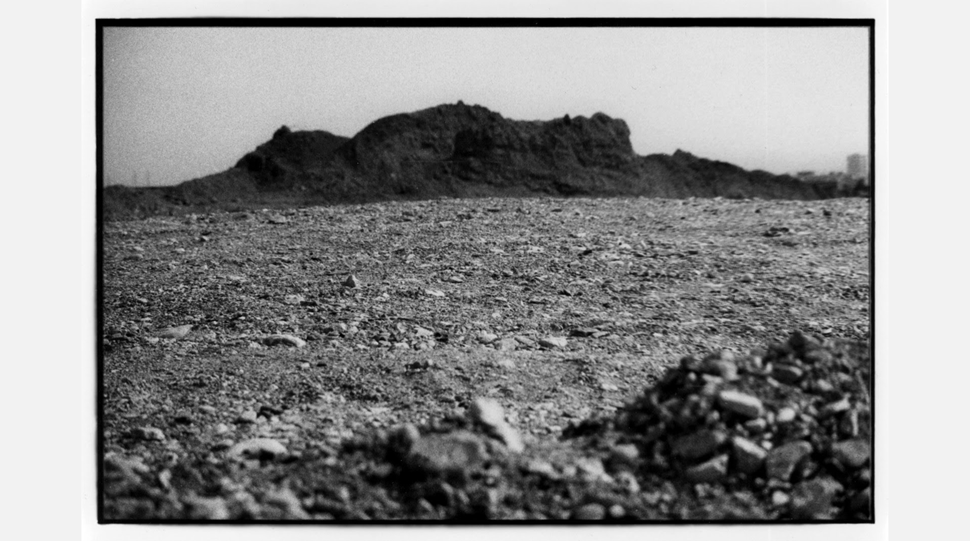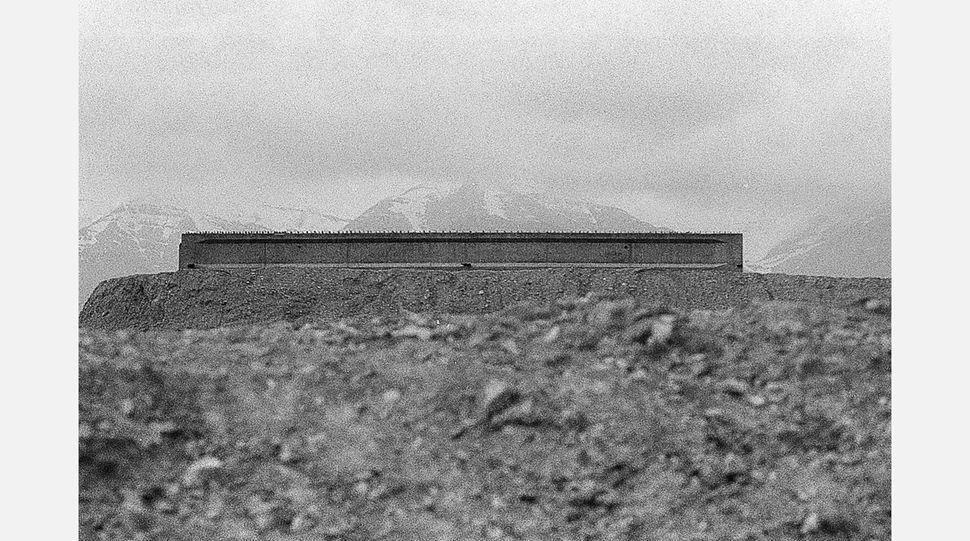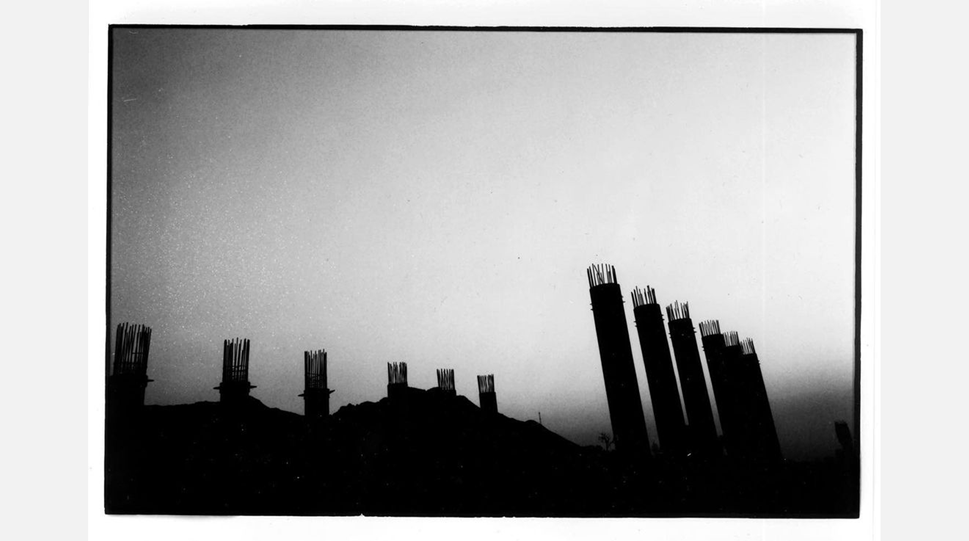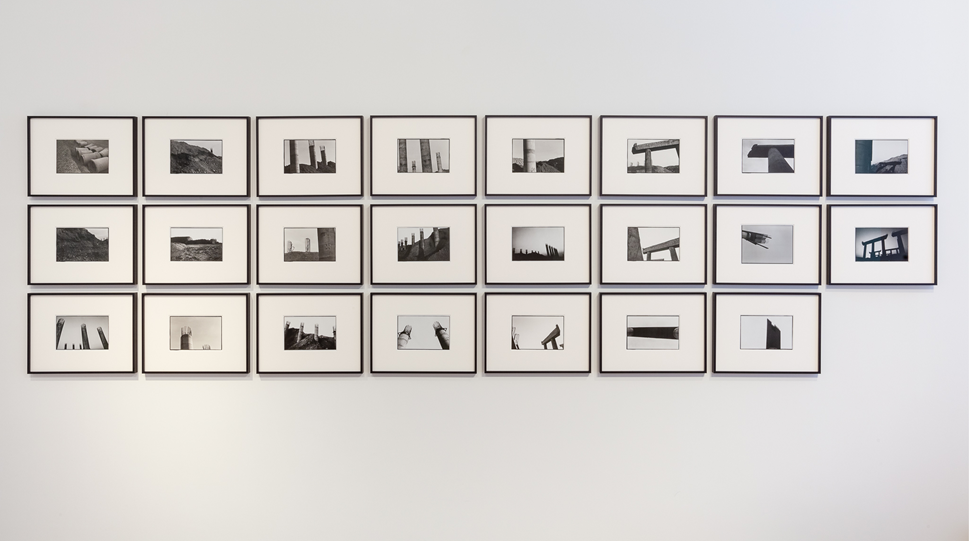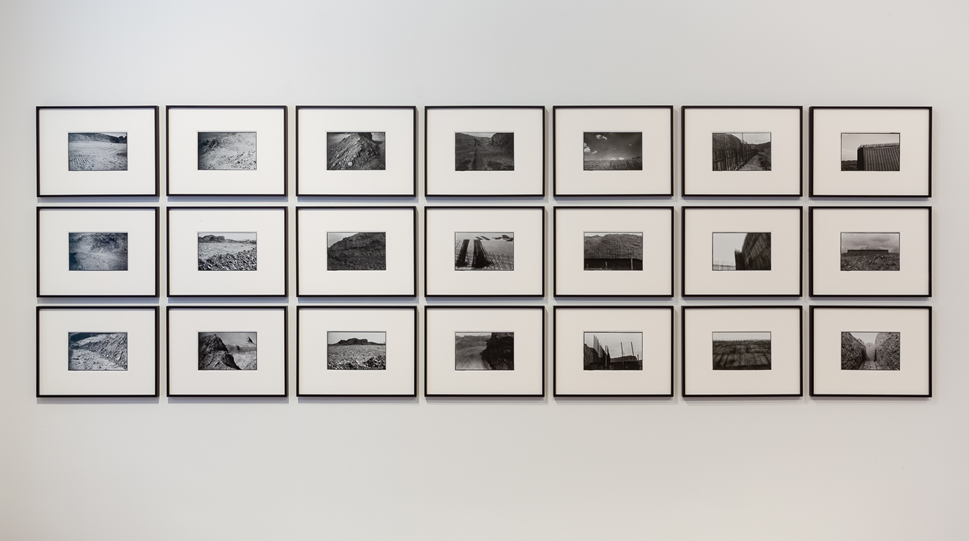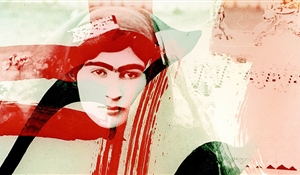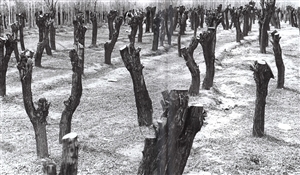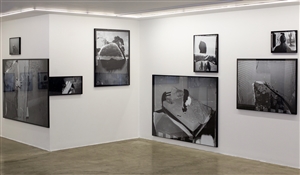Mohammad Ghazali's Solo Show at Ab-Anbar Gallery
10 Nov 2021Ab-Anbar Gallery will present the Persepolis 2560-2580 collection of Mohammad Ghazali at Gallery 10, Cromwell Place in London.

Installation View | Cromwell Place in London
Ghazali showcases his new photographs in "Persepolis 2560-2580". These photos are changing in a space between illustrated narrating and archeology. Every image has a hidden potential and the audiences are like active participants in revealing so. Ghazali usually presents his photos through collections and takes us towards unlikely views in a non-time and non-place position.
The artist, in this show, with his black and white photos and documents that strengthen their originality, obstructs the viewer. These photos make a documentary collection of constructing the ancient city of Persepolis. 2560-2580 refers to the Iranian solar calendar and the year of Cyrus the Great coronation, the first king of the Achaemenid dynasty. This name engages a point in the ancient history with the present time. In these works, Ghazali also pays attention to the dual meaning of these structures. These structures are the construction site of a modern road in Tehran. Roads were always a kind of communication tool and a way of transferring goods, ideas, language, and culture; Persepolis had been one of the main entrance paths for transferring culture as well.
The question that comes to the viewers' minds is that with the advances of technology today, where do modern roads bring us from and take us to? Or how do they share our ideas? We are used to regarding photography as essentially "real" and seeing the past as a fixed and immobile truth, but history and our understanding of it are never fixed and we always take part actively in creating and understanding the past. Modern media constantly manipulates our perception of our surroundings. With these concepts, Ghazali refers to George Orwell's book "1984": "Does the past exist concretely, in space? Is there somewhere or other a place, a world of solid objects, where the past is still happening? ... (if) we control all memories. Then we control the past, do we not?"
With this collection, Ghazali wants to make the viewer suspicious about the existing facts and question them. Like the photographer, we are all authors in fact, and we rewrite our experiences and understandings of the world around us. We are standing in a continuous flow of making history and the world where we live today, like a room of echoed landscapes, patterns, and experiences continues its path and can be identified and analyzed 2000 years in the past or in the future.
Mohammad Ghazali was born in 1980 in Tehran. He received his bachelor's degree in photography from Azad University and took a few study courses in Saint-Denis in France and Kassel in Germany. Ghazali has participated in more than 40 exhibitions, art fairs, and biennials so far.
First image: Mohammad Ghazali | Lost#007 | "Persepolis: 2560-2580" | Analog photograph silver gelatin print | 13.5 × 20.5
Second image: Mohammad Ghazali | Lost#046 | "Persepolis: 2560-2580" | Analog photograph silver gelatin print | solo edition
Third image: Mohammad Ghazali | Lost#031 | "Persepolis: 2560-2580" | Analog photograph silver gelatin print | 13.5 × 20.5
Fourth image: "Persepolis: 2560-2580" installation view in Cromwell, London | Photographer: Pedro Lima
Fifth image: "Persepolis: 2560-2580" installation view in Cromwell, London | Photographer: Pedro Lima
Sixth image: "Persepolis: 2560-2580" installation view in Cromwell, London | Photographer: Pedro Lima



